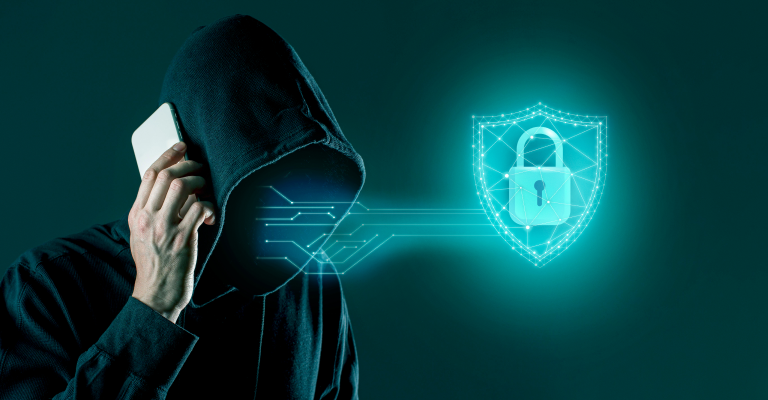Educational qualifications play an important role in securing employment and advancing careers. However, the rise in certificate fraud has undermined the integrity of the education system and eroded trust in academic credentials.
According to a recent report, the global trade in fake certificates is becoming a billion-dollar industry. This surge in fraudulent qualifications not only deceives employers but also diminishes the value of genuine degrees earned through hard work and dedication.
In order to combat certificate fraud, EveryCRED offers verifiable credentials (VCs) solutions for the education sector. Here, we are going to discuss how the problem of education certificate fraud is prevalent and how we can prevent certificate fraud in education with verifiable credentials.
What Exactly Is Education Fraud?
Education fraud includes various kinds of practices related to educational qualifications, including the creation of fake degrees and certificates. These fraudulent documents are often issued by diploma mills (a term for unaccredited institutions that issue fake degrees with little or no academic requirements).
Fraudsters may create entirely fake certificates from non-existent institutions or, modify official certificates to increase grades or claim unearned qualifications. The scale of education fraud is staggering. In the United States alone, it is estimated that over 200,000 fake degrees are sold each year. The problem is not limited to any particular region; it is a global phenomenon affecting countries worldwide.
Shockingly, a recent report revealed that 76 sets or 467 fake educational certificates from various institutes were seized in a single raid in Hyderabad, India.
Read: The Future of Verifiable Credentials in Education
Why Education Certificate Fraud Is a Serious Concern
The consequences of education certificate fraud extend far beyond the individuals who engage in such practices. It jeopardizes the credibility of the entire education system, devaluing the achievements of honest students and graduates. When unqualified individuals gain employment or admission based on fraudulent credentials, it can have severe implications for public safety, professional integrity, and societal trust.
For instance, in the healthcare industry, a person with a fake medical degree could potentially endanger patients’ lives. Similarly, in the engineering field, an individual with a fraudulent engineering certificate could compromise the safety of buildings and infrastructure
Several such cases have made headlines and show the gravity of the situation. In 2015, the New York Times exposed a massive diploma mill operation run by a Pakistani company called Axact, which sold fake degrees to clients worldwide, including government officials and executives.
More recently, in 2023, three nursing schools in Florida were found to have sold over 7,500 fake nursing diplomas, leading to a nationwide investigation and criminal charges against fraudulent nurses.
Impact of Certification Fraud on People and Various Industries
The ramifications of certification fraud are felt across various industries, jeopardizing public safety, professional integrity, and economic stability. Let’s examine the impact on some key sectors:
Healthcare
In the healthcare industry, the consequences of certification fraud can be life-threatening. An investigation found that a senior manager in the NHS, earning over £1,000,000, had lied about his educational history. Such instances put patients’ lives at risk and erode public trust in the healthcare system. The above-mentioned case of fake nursing diplomas in the United States underscores the potential harm to public health.
Education
The education sector itself is severely impacted by certification fraud. Universities like the University of the West of Scotland (UWS) have discovered networks selling fake certificates for as little as $600. This not only devalues the achievements of genuine students but also tarnishes the reputation of educational institutions.
Finance
In the finance industry, certification fraud can lead to significant financial losses and erode investor confidence. A report revealed that fraud costs the education sector at least $70 million globally, with $19.6 million originating from cases in the U.S. alone. The financial implications of certification fraud are substantial and far-reaching.
Government
Government agencies and public institutions are not immune to the effects of certification fraud. The case of Oscar Mabuyane, Premier of the Eastern Cape in South Africa, who fabricated his degree from Fort Hare University (FHU), highlights the reputational damage and public outrage caused by such incidents.
The Thriving Market for Fake Degree Certificates – Diploma Mills
Diploma mills are a shadowy world where academic credentials are commodities to be bought and sold. These fraudulent operations have evolved from small-scale local scams to sophisticated, transnational enterprises. These fraudulent operations often advertise their services through websites, social media platforms, and even legitimate-looking advertisements.
What Are Diploma Mills?
Diploma mills are businesses that sell illegitimate/fake diplomas or academic degrees. They often operate in a legal gray area, setting up shop in jurisdictions with lax regulations while targeting customers globally.
The diploma mill industry is estimated to be worth billions globally. In the United States alone, it’s believed that there are over 1,000 diploma mills in operation. These fake institutions not only sell degrees but also provide fabricated transcripts, letters of recommendation, and even verification services.
Why Do People Buy Fake Degrees?
- Career Advancement: The promise of quick career progression is a powerful motivator.
- Financial Incentives: On average, master’s degree holders earn 45% more than those with bachelor’s degrees.
- Competitive Job Market: In tight job markets, some see fake credentials as a shortcut to standing out.
- Lack of Time or Resources: For those unable to pursue traditional education, diploma mills offer a tempting alternative.
Hence, the ease of obtaining fake degrees has made it an attractive option for individuals seeking to enhance their job prospects or deceive employers. Some diploma mills even offer “verification services” to lend credibility to their fraudulent documents, making it challenging for employers to distinguish between genuine and fake qualifications.
How Verifiable Credentials Prevent Education Certificate Fraud
Verifiable credentials are a solid, powerful, and secure solution to combat education certificate fraud. Built on blockchain technology, verifiable credentials provide a tamper-proof and instantly verifiable method of issuing and validating academic qualifications.
Verifiable credentials bring several key benefits to the education sector and they prevent certificate fraud in education:
- Tamper-Proof: The cryptographic nature of verifiable credentials makes them resistant to tampering, counterfeiting, and forge. This ensures that the integrity of educational qualifications is maintained.
- Instant Verification: Verifiable credentials reduce the verification process from weeks to mere seconds. Employers and educational institutions can quickly and efficiently verify an individual’s qualifications.
- Enhanced Accessibility: Digital credentials stored in digital wallets are easily accessible and portable. Individuals can seamlessly share their academic achievements across various platforms and institutions.
- Transparency: The tamper-resistant nature of verifiable credentials ensures transparency in record-keeping. Any modifications made to a credential are recorded and visible to all relevant parties.
- Learner Control: VCs are decentralized so they put learners in control of their own data. They can choose to share their credentials with specific entities, ensuring privacy and data minimization.
With VCs, educational institutions can issue fraud-proof digital certificates that are easily verifiable by employers and other stakeholders. This technology not only prevents certificate fraud but also eases the verification process.
Check: How Decentralized Identity and Verifiable Credentials Can Transform the Healthcare Industry
EveryCRED’s Verifiable Credentials Solution for the Education Sector
At EveryCRED, we are committed to revolutionizing the way educational credentials are issued and verified. Our platform harnesses the power of verifiable credentials to provide a secure, efficient, and trustworthy solution for combating certificate fraud. By partnering with educational institutions and employers, we aim to restore trust in academic qualifications and create a more transparent and reliable ecosystem for education and employment.
Join us in the fight against education certificate fraud. Embrace the potential of verifiable credentials and take a stand for the integrity of educational achievements. You can book a free demo with our experts, and we will guide you on how our solutions can be integrated into your system and protect the credibility of your institution.
Conclusion
Education certificate fraud poses a significant threat to the integrity of the education system and the trust placed in academic qualifications. The increasing risk of fake degrees and the ease with which they can be obtained have created a crisis that demands immediate attention and action.
Verifiable credentials can be powerful and easy to implement solutions to this problem. Educational institutions can issue tamper-proof and instantly verifiable digital certificates, making it virtually impossible for fraudsters to create or sell fake degrees. This technology not only safeguards the authenticity of educational achievements but also empowers learners/students to control their own data and share it securely with employers and other stakeholders.

 8th October, 2024
8th October, 2024 



